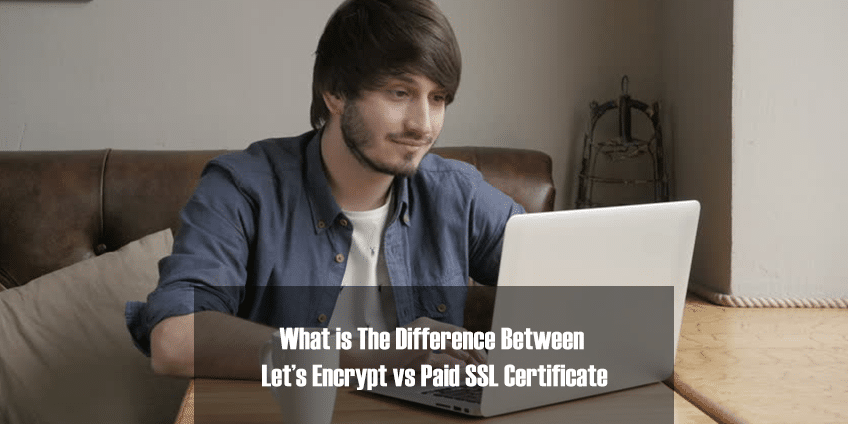What is The Difference Between Let’s Encrypt vs Paid SSL Certificate

With SSL Certificates becoming a mainstream need for online businesses, everyone started looking for affordable options. Let’s Encrypt has leveraged the Internet netizens with an option that is easy in installation and almost free. With almost no cost involved, Let’s Encrypt grew popular like a wildfire. Today Let’s Encrypt has more than a sumptuous website using its SSL certificates.
What actually is Let’s Encrypt?
Let’s Encrypt is based in California, this Certificate Authority aims to help people by providing them with online safety with free SSL Certificates. Let’s Encrypt grew popular when Google started coaxing webmasters to adopt SSL certificates or be marked as not secure.
While Let’s Encrypt is a viable option but it has some limitations; let’s draw a valuable comparison between Let’s Encrypt and Paid SSL Certificates and find out which one is ideal:
Limited Validity: SSL Certificates from Let’s Encrypt are valid only for 90 days, while a paid SSL certificate has a minimum validation of 2 years. Let’s Encrypt allows users to opt for automatic renewal but missing out on renewal can put the website and users in danger. With hackers lurking around, such risks are not worth taking.
Limited Validation: Extended Validation and Organization Validation requires verification of legal documents, organizations and manual inspection conducted by humans whereas Domain Validation is only about verification of Domain.
Since Let’s encrypt is based on an automation system, it can only provide Domain Validation SSL certificates. With no proper system like paid SSL CAs, Let’s Encrypt has to limit its services to Domain Validated SSL certificates only.
Customer Support: As mentioned earlier, Let’s Encrypt works on an automated system and has no manual system to look over the varied needs of a customer. A paid SSL Certificate comes with 24X7 customer support that ensures security round the clock.
With Let’s Encrypt documents are available, which can be read for resolving issues. Let’s Encrypt also maintains a strong online community of users, where everyone supports each other and tries to solve the problem.
With a paid SSL, you are one call away from customer support executive who can solve your problems in a jiffy.
Warranty: At the end of the day, the job of an SSL Certificate is to provide security against fraud transactions, hacking and end users losing money. Let’s Encrypt provides no guarantee and is not liable to pay any compensation in case of certificate failure or fraudulent transactions.
A Paid SSL Certificate comes with a warranty and the Certificate Authority (CA) is also liable for paying a compensation in case of end users losing money due to a fraudulent transaction. The compensation paid by these CAs can range between $10 to $1.5 million.
Concluding:
A paid SSL certificate will cost a few bucks in the beginning but in the long run, it provides you with a trustworthy platform, peace of mind and heavy compensation in case of any misfortune. It is advised for e-commerce and other businesses that carry online transactions to have a paid SSL certificate installed on their site.